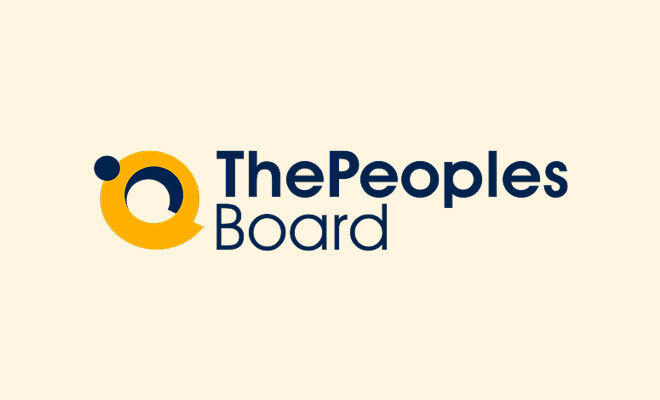Employee exits are an inevitable part of any organization. Understanding the reasons behind an employee’s decision to leave is critical for organizational growth, whether due to better opportunities, personal reasons, or dissatisfaction.
Asking the best exit interview questions is essential to gather valuable insights that can lead to significant improvements within the organization.
An exit interview provides this insight, serving as a structured conversation with departing employees to gather feedback about their experiences.
For Indian businesses, where workplace culture is diverse and deeply rooted in relationships, exit interviews can uncover unique insights into employee satisfaction, workplace dynamics, and areas of improvement. This article outlines how to conduct exit interviews effectively to benefit the organization and its employees.
What is an Exit Interview?
An exit interview is a formal process conducted when an employee resigns. Your exit interview typically involves asking the employee about their reasons for leaving, their experience with the organization, and any suggestions they have for improvement.
Key objectives of an exit interview:
- Understand employee turnover trends.
- Identify strengths and weaknesses in the organization.
- Gain actionable insights to improve retention and workplace culture.
Why are Exit Interviews Important?
An honest conversation regarding an employee’s experience can help an organization in numerous ways. Depending on the circumstances surrounding the departure, the exit interview can provide crucial actionable insights.
Improves Retention
Organizations can proactively work on retaining their workforce by addressing common reasons for employee turnover. Gathering feedback during exit interviews can help you identify issues related to communication, workload management, compensation strategies, and employee retention efforts.
Enhances Culture
Honest feedback can highlight toxic practices or areas needing cultural improvements. Addressing these factors can elevate the organization’s work environment and boost productivity.
Strengthens Employer Branding
Addressing feedback demonstrates that the organization values employees’ opinions, which improves its reputation.
Prepares for Transition
Exit interviews can uncover insights about ongoing projects, team dynamics, or challenges that might need attention after the employee leaves.
Preparing for the Exit Interview
Preparing for an exit interview is crucial to ensure that you gather valuable insights from departing employees. Here are some steps to help you prepare:
Schedule the Interview
Schedule the exit interview at a time that is convenient for the departing employee. Make sure to give them enough notice so they can prepare. This consideration shows respect for their time and encourages a more thoughtful and reflective conversation.
Choose the Right Interviewer
Select an interviewer who is neutral and not part of the departing employee’s chain of command. This impartiality helps the employee feel more comfortable sharing their feedback honestly, without fear of repercussions.
Prepare an Agenda
Prepare an agenda for the interview that includes the topics you want to discuss. This structure helps you stay focused and ensures that you cover all the necessary topics, making the most of the time you have with the employee.
Review the Employee’s File
Familiarize yourself with the employee’s job responsibilities, performance, and any issues they may have faced during their tenure. This background knowledge allows you to ask more relevant questions and understand their feedback in context.
Prepare Open-Ended Questions
Craft open-ended questions that encourage the employee to share their thoughts and feedback. Avoid yes or no questions or those that can be answered with a simple “fine.” Open-ended questions lead to more detailed and insightful responses.
How to Conduct an Effective Exit Interview
Once all the preparations are complemented, all that is left to is having a productive conversation with the person who scheduled to depart from the organization.
Schedule the Interview Thoughtfully
- Conduct the exit interview in the final week of the employee’s notice period. This ensures that they have completed most tasks and are in a reflective mindset.
- Choose a convenient time for the employee, avoiding overlaps with critical deadlines.
Create a Comfortable Environment
- Ensure the conversation is private and confidential. Employees are more likely to share honest feedback if they feel secure.
- Use a neutral tone to avoid the employee feeling defensive or uncomfortable.
Use a Structured Format
Prepare a standard set of exit interview questions to ensure key topics are covered while allowing room for open-ended responses.
Sample interview questions to ask:
- What motivated your decision to leave?
- What did you like most about your role and the organization?
- Were there any challenges or concerns that went unresolved?
- How would you rate the support and resources provided for your role?
- Do you have any suggestions for improving the work environment or management practices?
Be an Active Listener
- Pay close attention to the employee’s responses without interrupting.
- Avoid being defensive, especially if the feedback involves criticism of policies or management.
- Show appreciation for their honesty and acknowledge their contributions.
Document Feedback Effectively
- Record the key points discussed during the interview.
- Use tools like digital forms or HR software to ensure feedback is stored securely and is easy to analyze later.
- Ensure anonymity in the feedback report if the employee requests it.
Analyze and Act on the Feedback
- Identify patterns in the feedback received from multiple exit interviews.
- Categorize the feedback into actionable and non-actionable items.
- Share the findings with leadership and relevant teams to implement necessary changes.
End on a Positive Note
- Thank the employee for their time and contributions to the organization.
- Provide them with information about final settlements, experience letters, and contact points for post-employment queries.
- Maintain goodwill, as departing employees can be future advocates or even rehires.
Exit Interview Questions Examples
Effective exit interview questions are designed to gather valuable insights from departing employees. Here are some examples of effective exit interview questions:
- What were the reasons for your departure?: This question helps you understand why the employee is leaving and what you can do to prevent similar departures in the future. It provides a clear picture of the factors influencing their decision.
- What did you enjoy most about your job?: This question helps you understand what the employee liked about their job and what you can do to improve job satisfaction for remaining employees. Positive feedback can highlight strengths to build upon.
- What were some of the challenges you faced in your role?: This question helps you understand the challenges the employee faced and what you can do to address them. Identifying common issues can lead to improvements in the workplace.
- How would you rate your overall experience at the company?: This question helps you gauge the employee’s overall experience at the company and what you can do to improve it. It provides a summary of their time with the organization.
- Do you have any suggestions for improving the company?: This question helps you gather feedback and suggestions from the employee on how to improve the company. Their insights can lead to actionable changes that benefit the organization.
Common Mistakes to Avoid
- Rushing the Process: A hurried exit interview may miss crucial insights. Take the time to conduct it thoroughly.
- Being Defensive: Responding negatively to criticism can discourage honest feedback.
- Not Following Up: Failing to act on feedback renders the entire exercise meaningless.
- Treating It as a Formality: Exit interviews should be genuine efforts to learn and improve, not just a tick-box exercise.
Cultural Considerations for Indian Workplaces
- Regional Sensitivities: Address differences in work culture preferences based on geography. For example, employees in southern India may value job stability more than urban employees in metros like Mumbai or Delhi, who might prioritize career growth.
- Language Barriers: Conduct interviews in the language the employee is most comfortable with, be it Hindi, English, or regional dialects.
- Family Influence: In India, family plays a significant role in career decisions. Acknowledge this factor when discussing reasons for leaving.
Challenges in Conducting Exit Interviews
- Reluctance to Share: Employees may fear burning bridges or facing repercussions for candid feedback.
- Bias in Feedback: Some employees may exaggerate issues or hold back criticism due to politeness.
- Resource Limitations: Smaller businesses may lack the tools or expertise for effective exit interviews.
Tips for Success
- Train HR Professionals: Equip them with skills to ask the right questions and handle sensitive feedback.
- Encourage Transparency: Assure employees that their feedback will be used constructively.
- Promote Continuous Improvement: Share how previous feedback has led to positive organizational changes.
Conclusion
Exit interviews are powerful tools for understanding employee turnover and improving workplace practices. By conducting them thoughtfully and acting on the feedback received, organizations can build a culture that values continuous learning and employee satisfaction.
For Indian businesses, the insights gained from exit interviews can help address unique challenges like regional disparities, competitive talent markets, and evolving employee expectations.
With a structured approach, you can turn employee exits into opportunities for growth and improvement, creating a stronger and more resilient workforce. Remember, every exit interview is a chance to learn. Handle them effectively, and your organization will reap the long-term benefits of a happier, healthier workplace.






